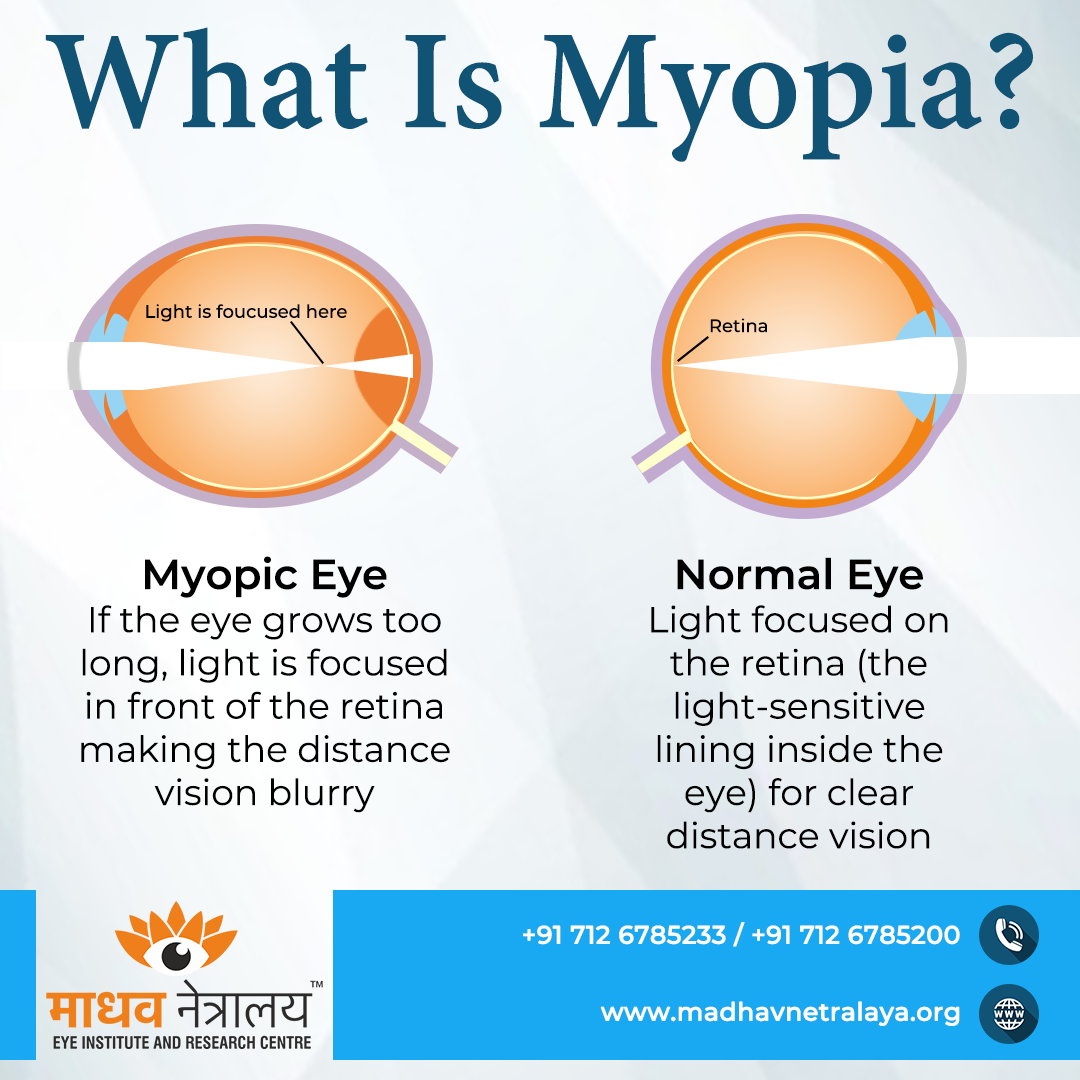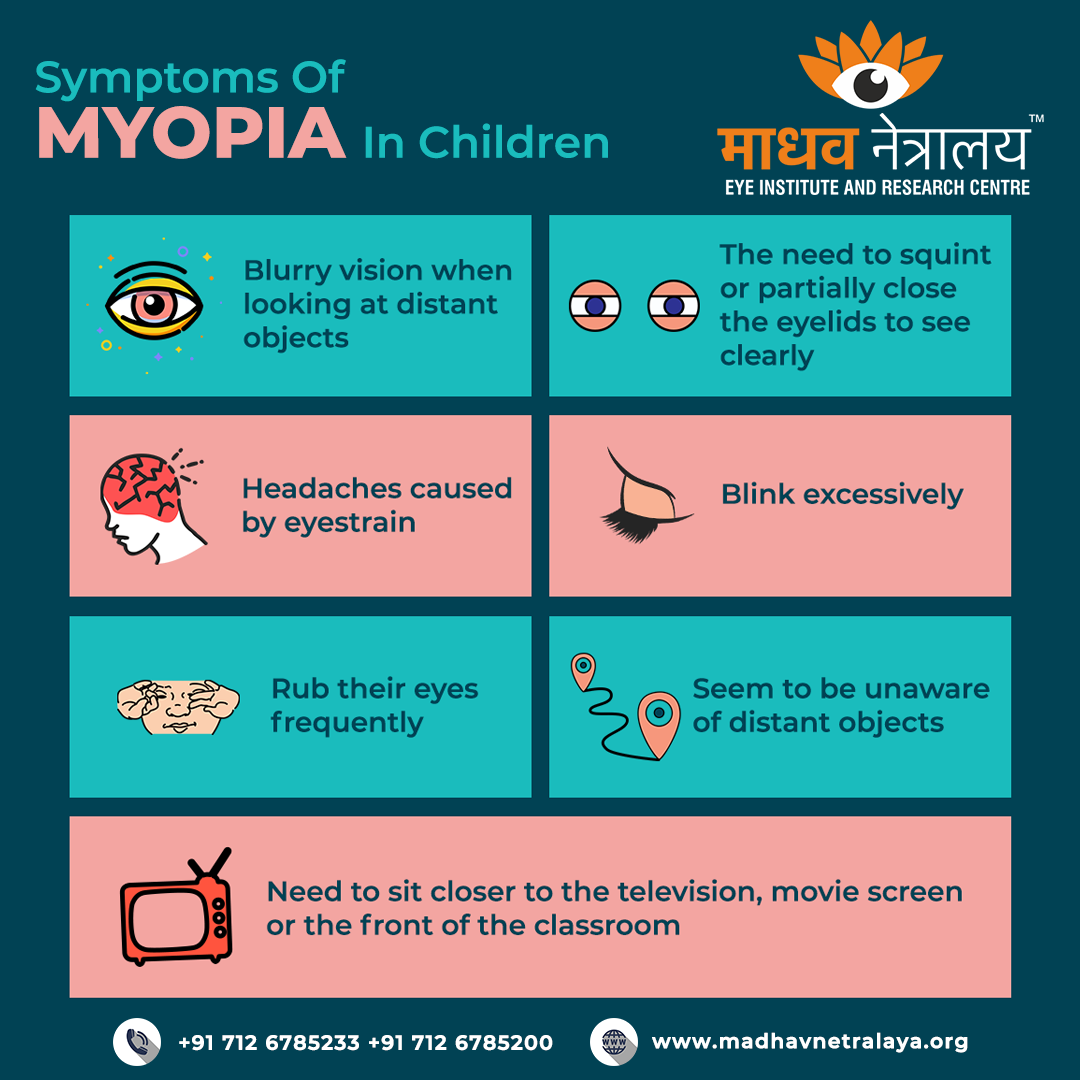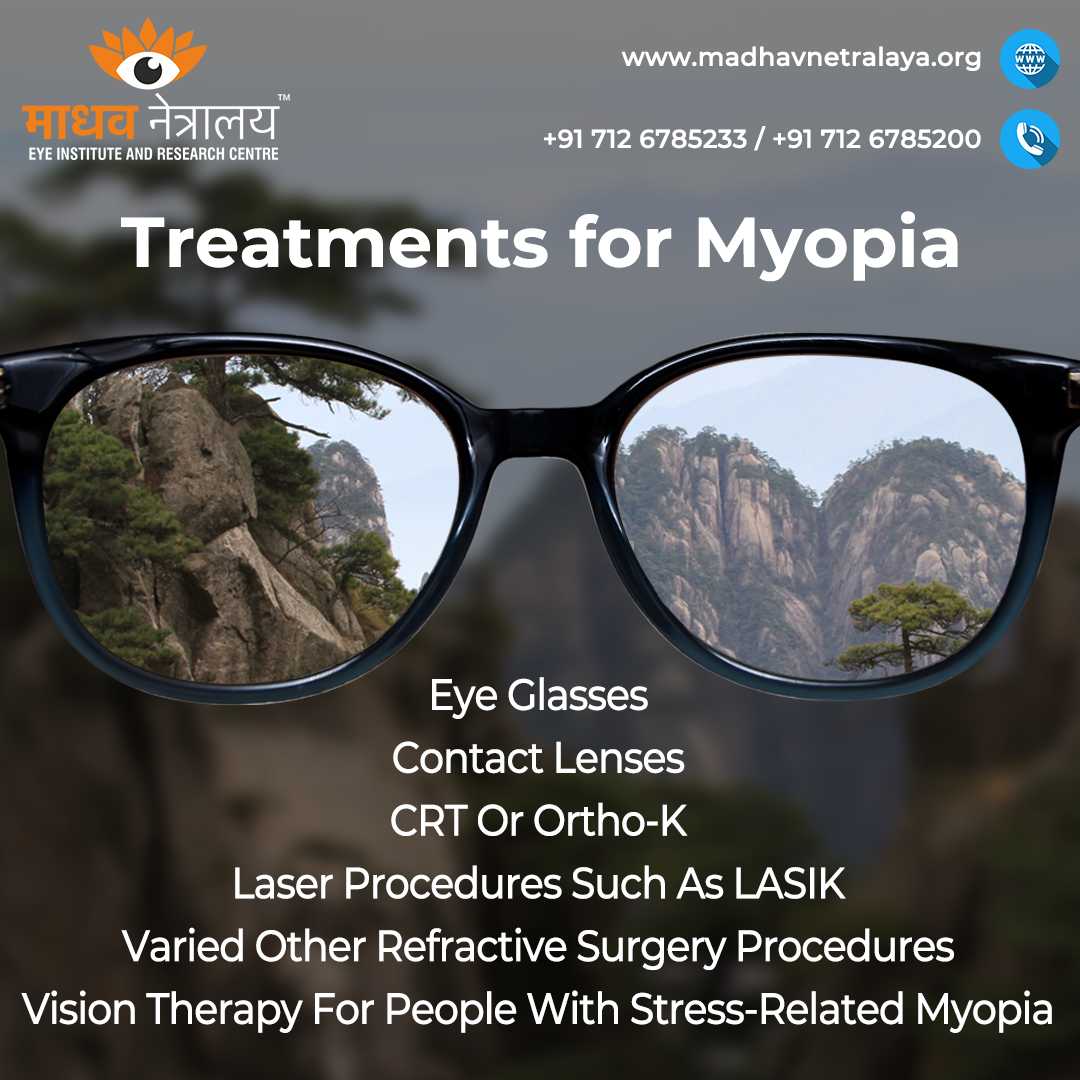MYOPIA AN EPIDEMIC !!
Myopia (also called nearsightedness) is the most common cause of Impaired vision in people under the age of 40. It is a condition in which close objects appear clearly, but far ones don’t. In recent years, its prevalence is growing at an alarming rate and more than 10 million cases per tear in getting diagnosed in India.

Diagnose
Myopia is usually self-diagnosable. Faraway objects appear blurry. The condition may develop gradually or rapidly. Near-sightedness tends to run in families.
People may experience:
Visual : Blurred Vision or Distorted Vision
Eyes : Squinting or Eye Strain
Also common : Headache
Causes

Nearsightedness on Myopia can be caused by increase in length of eyeball or cornea, also lens being too curved for the length of the eyeball. In some cases, myopia occurs due to a combination of these factors. Myopia typically begins in childhood, and you may have a higher risk if your parents are nearsighted.
Treatments:

Treatments options include glasses, contact lenses and surgery such as LASIK.
1) Glasses : A frame wore on the nose that holds a set of lenses to correct vision or protect the eyes.
2) Contact Lenses : A lens placed directly on the eye to correct or assist with vision.
3) Ortho-k lenses : These are prescribeed for some purpose such as to slow the progession of child myopia.
4) LASIK : It is popular type of Refractive Surgery, which is commonly referred to as laser eye surgery or laser vision correction surgery that reshapes and removes tissue from the front of the eye (cornea) to correct the vision.
5) Refractive Surgery : The type of surgery to reshape the front of the eye (cornea) to correct or improve the vision.
6) IPCL : The intraocular lens is used for the correction of the long range of myopia (nearsightedness), hyperopia (farsightedness), etc.
7) ICL : Implantable Collamer Lens, as the name suggests it is a procedure wherein a pair of lens is implanted into the eyes which do not require to be removed like normal contact lenses.
Specialists:
Optometrist : Diagnoses and treats vision changes.
Ophthalmologist : Specialises in eye diseases.
Patients are suggested to consult a doctor for medical advice. If you are having trouble seeing near objects or find you are holding books (or your smartphone) farther away to better make out the words, you should see your eye doctor.